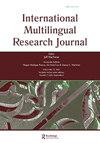骄傲与利益:俄罗斯的语言、身份和旅游业
IF 2.1
1区 文学
Q2 EDUCATION & EDUCATIONAL RESEARCH
引用次数: 0
摘要
本文认为,拥有少数民族语言、民族语言和全球语言的多语言场所可以成为社会经验意义谈判和争论的场所,少数民族语言的作用可以重新概念化。更具体地说,该研究以俄罗斯的少数民族语言鞑靼语为例,并以“骄傲”和“利益”为比喻,揭示了参与者与语言的符号联系包括社会类别、归属感和同志情谊,以及以产生经济利益的真实商品和服务形式表示的象征性利益。尽管语言净化和标准化的民族国家意识形态及其在“自我”和“他者”建构中的作用挥之不去,但研究表明,旅游可以通过包装语言增强的特征来丰富游客的体验,并确保经济利润,为语言生产者创造更强的自豪感,认同感和赋权,从而成为一种真实的差异化方法。本文章由计算机程序翻译,如有差异,请以英文原文为准。
Pride and profit: language, identity and tourism in Russia
ABSTRACT This article argues that multilingual locales with minority, national and global languages at hand can become a site where meaning of social experience is negotiated and contested, and the role of minority languages can be reconceptualized. More specifically, using the example of Tatar, a minority language in Russia, as well as the framework grounded in the tropes of ‘pride’ and ‘profit, the study reveals that participants’ symbolic connections to language include social categories, sense of belonging, and camaraderie, as well as the indication of symbolic profit in the form of authentic goods and services that generate economic benefits. Despite the lingering nation-state ideologies of language purification and standardization and their role in construction of the “self” and the “other,” the study demonstrates that tourism may serve as a method of authentic differentiation by packaging language-enhanced features to enrich experiences for tourists, and to secure economic profit, create a stronger sense of pride, identity, and empowerment for producers of the language.
求助全文
通过发布文献求助,成功后即可免费获取论文全文。
去求助
来源期刊
CiteScore
4.10
自引率
4.80%
发文量
19
期刊介绍:
The International Multilingual Research Journal (IMRJ) invites scholarly contributions with strong interdisciplinary perspectives to understand and promote bi/multilingualism, bi/multi-literacy, and linguistic democracy. The journal’s focus is on these topics as related to languages other than English as well as dialectal variations of English. It has three thematic emphases: the intersection of language and culture, the dialectics of the local and global, and comparative models within and across contexts. IMRJ is committed to promoting equity, access, and social justice in education, and to offering accessible research and policy analyses to better inform scholars, educators, students, and policy makers. IMRJ is particularly interested in scholarship grounded in interdisciplinary frameworks that offer insights from linguistics, applied linguistics, education, globalization and immigration studies, cultural psychology, linguistic and psychological anthropology, sociolinguistics, literacy studies, post-colonial studies, critical race theory, and critical theory and pedagogy. It seeks theoretical and empirical scholarship with implications for research, policy, and practice. Submissions of research articles based on quantitative, qualitative, and mixed methods are encouraged. The journal includes book reviews and two occasional sections: Perspectives and Research Notes. Perspectives allows for informed debate and exchanges on current issues and hot topics related to bi/multilingualism, bi/multi-literacy, and linguistic democracy from research, practice, and policy perspectives. Research Notes are shorter submissions that provide updates on major research projects and trends in the field.

 求助内容:
求助内容: 应助结果提醒方式:
应助结果提醒方式:


